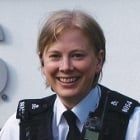 What is your typical day like as a senior education consultant?
What is your typical day like as a senior education consultant?
The main part is as an instructor delivering standard or customised training. I also spend some time preparing for courses.
Courses are typically two to three days long and I usually deliver one course every week. All SAS instructors deliver programming courses - there are five to six of those - and then specialise in the other three curriculum areas: statistics, business intelligence, and data integration.
I deliver courses at our own locations - Marlow, Manchester, Glasgow and Dublin, our base in London, or at customer offices. We increasingly go to customers' own offices, usually in the UK, but occasionally we go abroad if a customer has a big overseas office with English speaking staff.
We also get involved with user events - for instance the SAS Professional Convention where SAS experts give presentations to a gathering of SAS users, and users have the opportunity to take SAS certification exams.
We instructors are also involved in leading or contributing to discussions on SASprofessional.net - a social network that allows SAS users to keep in touch with us.
How did you get to where you are?
I had no grand plan to get into IT. I studied geography at university, and then just got a job - in a call centre for a credit card company.
The company I worked for had a scheme called Ideas in Action, and through it I suggested how to improve a database. I got a call from the IT manager who had seen my idea and had a vacancy in his department for a Unix administrator.
I went on Unix and SAS training courses, as the Unix server was also the SAS server. I loved the SAS part - partly because I picked up the programming very easily. It was quite intuitive and not really technical, more about the business and people side.
After 18 months, I applied for a job with a SAS consultancy in Slough. When I was invited for interview, I stayed with a friend who knew someone at SAS. He asked if they'd be interested in interviewing me, and I ended up here, by chance, as a technical consultant.
How did you make the move into training?
In 2007, I decided what I was doing was not the right long-term career for me. I considered what I could do at SAS - as I didn't want to leave - and thought that education could be the most rewarding option. I had taught a course in summer 2003 for the SAS education department and loved it. I enquired and the education department had a vacancy.
That was really my first pro-active career move. I had no doubts right from the first months that it was right decision.
Is there anything you don't like?
Travelling has an impact on my private life, but it comes with the job and I knew about it from the start.
What advice would you give to others interested in a role like yours?
I don't think education is something you should do at the start of your career. It's good to get a grounding in what you will be teaching first. I used SAS for 10 years before teaching it. With real work experience, you can bring to life the material you are teaching and advise customers on how to use it.
You also need to enjoy being with people and be patient. You need to be passionate about what you're teaching; it's not enough just to know it. I think SAS software is amazing, so I find it easy to convince other people of that. You need good communication skills and to be able to bring the material alive.
Why did you become a special constable?
The police gives me experiences that would be impossible to get via other activities, such as putting me in situations of conflict. It means I push myself outside of my comfort zone.
What does it involve?
We are volunteer police officers. We have the same powers as the regular police and wear the same uniform. Sometimes we do a response shift - responding to calls on 999 and on the non-emergency number. And we do neighbourhood policing in anti-social behaviour hotspots.
We have to do a minimum of 18 hours per month. That usually means two shifts of 10 hours. I usually do Saturdays, 5pm to 3am. I am careful not to work late on Sundays, so that it doesn't affect my paid work. The police are clear also that the day job comes first - and never force you to do a shift. The work is voluntary; we just get expenses paid.
What has been the most memorable incident?
So many jobs are memorable, but one of the most was attending my first road traffic incident. It was on a country road late at night and I could see lots of blue flashing lights from a fire engine and ambulance, and a badly damaged car on its side in the middle of the road.
My stomach turned over because I was expecting to see people badly injured. A paramedic told me that the car was empty so our priority was to find the driver and passengers.
We found the driver hiding in a nearby garden. He admitted he was the driver and the only person in the car, and, amazingly, he was uninjured. But he was clearly drunk and I arrested him and took him to the police station where he provided a breath test sample three times over the legal limit.
Does your police work benefit your paid job?
It was the other way round to start with - the day job helped me get into the police. The recruitment process included picking a piece of paper with a word on it and having to talk about it for three minutes. Having given pre-sales presentations and delivered training, that didn't worry me at all. Both jobs are about communicating.
Now the police work puts me in extremely stressful situations, which can help back in the office. It also gives me a perspective of life that I wouldn't usually see - people at their worst moments. I think it helps me be a more rounded person.
How else do you learn for the day job?
We are regularly trained on technical and delivery skills at SAS. However, SAS has such a large product set that it is impossible to know everything. One of my favourite ways of learning is when it's done in a less formal way, for example when someone on a course asks you a question that you don't know the answer to and you have to go and find the answer out for yourself.
Does SAS use many learning technologies?
This year we started looking at Live Web training. I worked with another instructor to evaluate Adobe Connect. In the US, they've been using it for years because of the geography. They deliver the same courses on Live Web as in the classroom. We think for us it's better to use it for short topics.
We've also used Live Web to prepare for the SAS Professional Convention, which took place in July at SAS UK's headquarters in Marlow. At SAS Professionals, we gathered together over 100 SAS users to do SAS certification examinations. There were four teams - each had two instructors - and they used Live Web to conduct study groups during the last few weeks prior to the exams.
This Live Web method resulted in a much lower drop-out rate in users taking the certification exam after training. Usually the drop-out rate is 15-20 per cent, but due to the use of Live Web this year, this decreased to 3-4 per cent. I think that's because there is the sense of a team and the learners feel a lot more engaged. The teams and instructors are competitive over which team will get the most passes.
Will classroom training survive?
I think there will always be a place for it. It's still the best way to learn, and there is no substitute for collaboration between participants.
Live Web has its place, for instance for teaching a new bit of syntax - in short, framed sessions. It will improve with better broadband. At the moment when you are demonstrating something with a mouse, for instance, there is a delay between the instructor moving it, and the student seeing it on their machine.
Helen Cockroft's career timeline
2001 - Present, SAS, UK Headquarters, Marlow, Bucks
2007 - Present, Senior Education Consultant
2003 - 2007, Senior / Pre-sales Consultant
2001 - 2003, Consultant
1998 - 2001, The Associates Capital Corporation, Manchester
1999 - 2001, SAS / UNIX Administrator
1998 - 1999, Customer Services Officer












